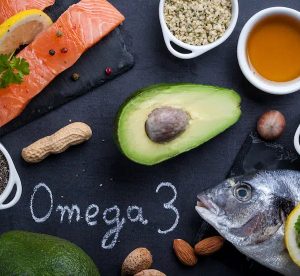Important habits of people who do not get fat
Many of us know people who never seem to gain weight, and we’ve probably asked ourselves what their secret is.
Maybe their secret lies in exercise, their love of eating fresh vegetables and even their genetics. Here we want to discuss the 3 main habits of these people who do not get fat.
Why do we gain weight?

Many of us gain weight as we age. Does genetics play a role in our weight and whether we try to lose or maintain it?
In fact, some research has shown that different types of genes increase appetite or the feeling of hunger and eating.
Obesity is the result of an interaction between genetics and environment that is not yet fully understood. Genetics play a role in the speed of a person’s metabolism.
People with a faster metabolism usually burn more calories and don’t gain as much weight as those with a slower metabolism.
While we cannot change our genes and family history, we can control our weight.
There are many factors that show why a person does not gain weight and genetics cannot be the only reason.
Genetics sets the stage, but that doesn’t mean we can’t create a healthier version of ourselves.
People who don’t gain weight avoid doing so
If you know someone who doesn’t gain weight, they probably won’t give in to fad diets.
Success in weight loss depends on consistency and changing lifestyle habits, not short-term dietary restrictions.
Instead of dieting, it is better to have fixed and low-calorie meals, especially breakfast.
3 habits of people who do not gain weight and do not get fat
1. They have healthy diets

People who want to keep their weight down make good food choices and choose foods that are high in nutrients without the added sugar and fat to help them lose weight.
In addition to losing weight, having a healthy diet can help prevent diabetes, stroke, heart disease, and other conditions that shorten your life.
A healthy diet does not mean that you should give up ice cream or other foods, but be sure that the foods you eat are good for your body. Moderation is always the key to life.
Everything is good in moderation. When it is too much, it will have harmful effects. Then use sweets or foods you like in moderation.
2. They eat until they are full and no more

It takes about 20 minutes for the brain to feel full. How we eat, how fast we eat, how we feel when we eat and how late we eat is important.
When we are full, we should not eat anymore and this takes time. We should also chew our food well and this helps in digestion.
Therefore, if you eat a heavy meal in a hurry and feel bloated and uncomfortable afterwards, you should change your method as soon as possible.
Start by putting down your tablet or cell phone to pay attention to what you eat.
Take more time to eat and experience the taste and feel of each food and stop eating when you feel full.
Just eat until you feel full, don’t feel like you have to clean the bottom of your plate.
Harvard Medical School’s surgeon general recommends avoiding late-night snacks, and you may even need to close the kitchen door at night.
Eating late at night disrupts your circadian rhythm, alters your body temperature cycle, and increases free cortisol production to increase your risk of obesity and metabolic syndrome.
3. They are physically active
Most people who can maintain a healthy weight are physically active. You are more likely to gain weight when you are sedentary.
Experts recommend at least 150 minutes of moderate-intensity physical activity per week.
If you want to lose weight or maintain your weight loss, you may need to exercise more.
While exercise is great, you don’t need to have a gym routine to be physically active.
In fact, doctors prefer physical activity to exercise. However, being thin and not gaining weight does not necessarily mean being healthy.





